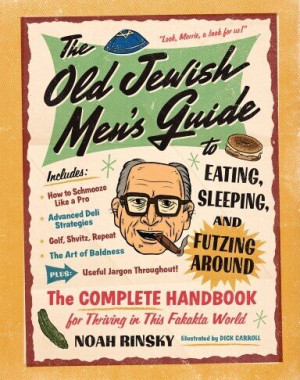Reading this book is like taking a trip to Baskin-Robbins, only instead of flavors of delicious ice cream, you get delicious flavors of guilt, each irresistible in its own, funny, weird, touching, infuriating but inevitably engaging way. If you’re a woman, you’re bound to recognize yourself (or your mother or grandmother) somewhere among these 28 painfully honest essays, probably more than once.
It might be the manicure and pedicure that Daphne Merkin, raised Orthodox no less, got on Yom Kippur. Or the Jewish breasts, noses, hair — those supposedly distinctive Semitic features that so obsessed Baz Dreisinger when she played “spot the Jew” with her sister at the mall. Maybe it will be the message Lauren Grodstein saw in Monica Lewinsky’s behavior in the Clinton White House: Jewish women always giving, never getting.
The collection is organized into five categories whose titles are almost as much fun as some of the essay titles. The first section, “Chai Anxiety: What, Me Worry?” for example, includes an essay called “Among the Holy Schleppers” by Jennifer Bleyer, who traces the origins of her Jewish journey to a Grateful Dead concert she attended at age 16. The section titled “Babes in Goyland” includes Amy Klein’s uproarious piece, “True Confessions of a JDate Addict.” According to the bios that appear at the end of the book, all of the contributors are professional writers, including novelists, journalists, writing professors and screenwriters.
Most of the essayists hammer the guilt theme right on the head. With others, the theme seems more subdued. The writer is usually the sufferer of guilt, self-imposed or otherwise. Occasionally, she’s the perpetrator. What exactly is guilt, anyway? To the editor, Ruth Andrew Ellenson, an Israeli-born writer living in Los Angeles, guilt lies between the “ideal of who you should be and the reality of who you are.” Is Jewish guilt worse than gentile guilt? Maybe not, but Jewish guilt can certainly be more in-your-face, as the essays in this book suggest.





